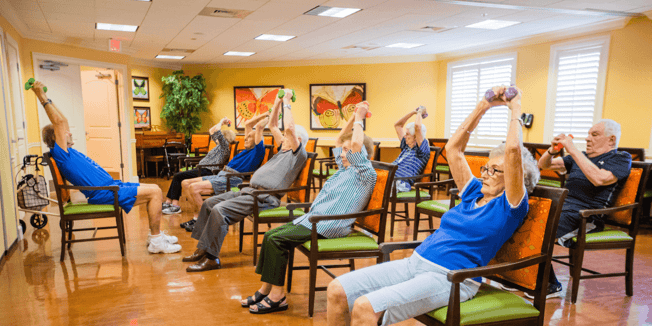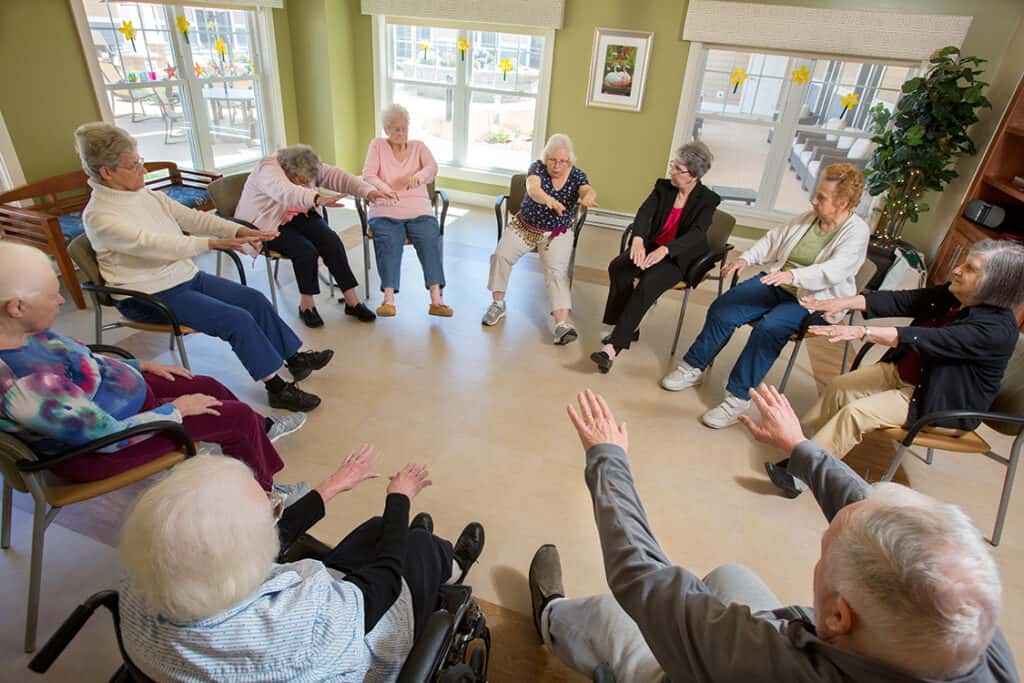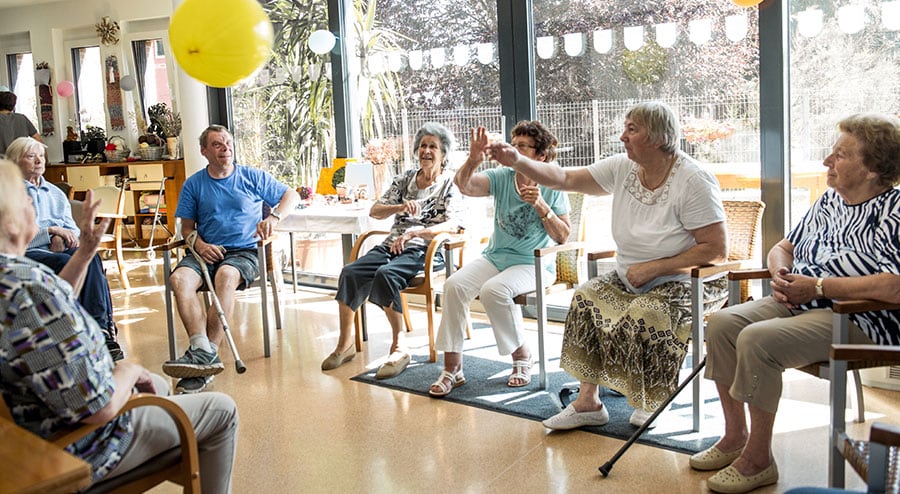Find pet-friendly Assisted Living homes for seniors who love animals.
Find pet-friendly Assisted Living homes for seniors who love animals.
Blog Article
Just How Assisted Living Facilities Enhance Lifestyle for Those With Mental deterioration
Helped living centers play a pivotal duty in boosting the top quality of life for people with mental deterioration by executing customized treatment methods that deal with their distinctive requirements. These settings combine organized activities with emotional assistance, fostering a sense of community while making certain security and freedom. The assimilation of appealing programs and family involvement better enhances the citizens' experience. Yet, the complexities of dementia care continue to progress, motivating a more detailed exam of exactly how these centers adapt and innovate to meet the challenges encountered by citizens and their families. What implications does this have for future care models?
Personalized Treatment Program
(Dementia Care Charlotte)In a lot of cases, people with dementia need customized support that resolves their unique demands and preferences. Individualized treatment strategies are crucial in assisted living settings, as they guarantee that each resident gets appropriate focus and services. These strategies are created collaboratively, involving medical care specialists, caregivers, and relative to create a thorough review of the person's clinical background, cognitive capabilities, and individual interests.
A well-structured tailored care plan usually consists of specific objectives associated with health administration, daily tasks, and social engagement. It accounts for the person's cognitive decline while promoting self-reliance and self-respect. Routine evaluations and updates to the care plan are vital, as they permit adjustments based on the local's evolving problem and preferences.
Key parts of these plans typically involve medication management, behavioral support approaches, and nutritional guidelines customized to the person's demands (Memory Care). By concentrating on individualized treatment, helped living centers can cultivate a supportive atmosphere that boosts the high quality of life for people with mental deterioration, ultimately adding to their total health and happiness. This customized method respects the uniqueness of each resident, guaranteeing they receive the caring treatment they need

Involving Activities and Programs
Engaging homeowners in meaningful activities and programs is important for enhancing the quality of life for people with mental deterioration. These activities not just give enjoyment yet likewise boost cognitive feature and advertise social communication, which can reduce sensations of seclusion often experienced by citizens.

Furthermore, individualized programs are vital in ensuring that each homeowner's distinct preferences and capabilities are acknowledged. This customized method motivates engagement, improves self-esteem, and supplies a sense of accomplishment.
In addition, normal assessments of residents' interests can aid staff modify and adjust tasks to better match progressing requirements. By prioritizing engaging tasks and programs, assisted living facilities can dramatically enhance the total experience and psychological health and wellness of individuals coping with mental deterioration.
Safe and Helpful Atmosphere
Creating a risk-free and encouraging environment is necessary for individuals with dementia, as it straight affects their wellness and top quality of life. Assisted living centers are designed with particular attributes that promote safety while cultivating a sense of security and convenience. These environments prioritize access, with formats that decrease confusion and encourage self-reliance, enabling locals to navigate their environments more quickly.
Precaution, such as safe and secure entries and departures, prevent roaming and unapproved access, which are critical considerations for individuals with mental deterioration (Assisted Living). Staff participants are educated to recognize the unique requirements of locals, giving customized support and supervision to ensure their security. In addition, the incorporation of soothing colors and familiar objects can help reduce anxiousness and disorientation, developing a much more comforting atmosphere.
In enhancement to physical safety and security, psychological support is extremely important. Facilities usually use team that are not just knowledgeable in caregiving yet likewise learnt compassion and interaction, fostering trust fund and rapport with locals. This alternative approach adds to a caring environment where people really feel valued and understood, eventually boosting their general lifestyle.
Social Interaction and Neighborhood
A helpful atmosphere not only focuses on security but also promotes chances for social interaction and community interaction, which are essential for individuals with dementia. In assisted living centers, structured activities and communal rooms motivate homeowners to connect with one an additional, decreasing sensations of seclusion commonly experienced by those with cognitive disabilities.
Social communication plays a substantial role in improving emotional wellness and cognitive feature (Memory Care). Involving with peers in group activities such as games, arts and crafts, or workout not just stimulates cognitive capabilities however also nurtures a sense of belonging. Facilities typically arrange occasions that advertise socialization, allowing locals to develop connections and share experiences, which can be especially helpful for those with dementia
Moreover, a vibrant neighborhood environment can boost the overall top quality of life for citizens. Employee are trained to help with communications and assistance residents in developing meaningful connections. By creating a society of involvement, helped living facilities aid people with dementia maintain social abilities and enhance their state of mind, eventually adding to an extra meeting life experience. This community-oriented approach is essential in handling the obstacles connected with dementia, promoting a feeling of objective and connection for residents.
Family Members Participation and Support
Family members participation is critical in sustaining people with dementia in assisted living settings. Proactively engaging family members not only gives emotional comfort to citizens but additionally cultivates a feeling of belonging and continuity in their lives. When families take part in treatment preparation and day-to-day tasks, they add important understandings concerning the person's choices, history, and needs, which can improve individualized treatment.
Furthermore, normal family members sees can dramatically improve the emotional well-being of citizens, reducing sensations of isolation and stress and anxiety. Member of the family can also assist in preserving cognitive feature by engaging their liked ones in acquainted discussions and activities. This interaction enhances individuality and assists homeowners additional info really feel valued and comprehended.

Final Thought
Finally, assisted living centers substantially boost the top quality of life for people with dementia via personalized treatment strategies, engaging activities, and a risk-free environment. These elements foster cognitive stimulation, emotional health, and a feeling of self-reliance. Normal social interactions and strong family participation add to meaningful connections and emotional support. Jointly, these factors produce an all natural method to care that addresses the distinct demands of individuals with dementia, advertising overall health and self-respect.
Report this page